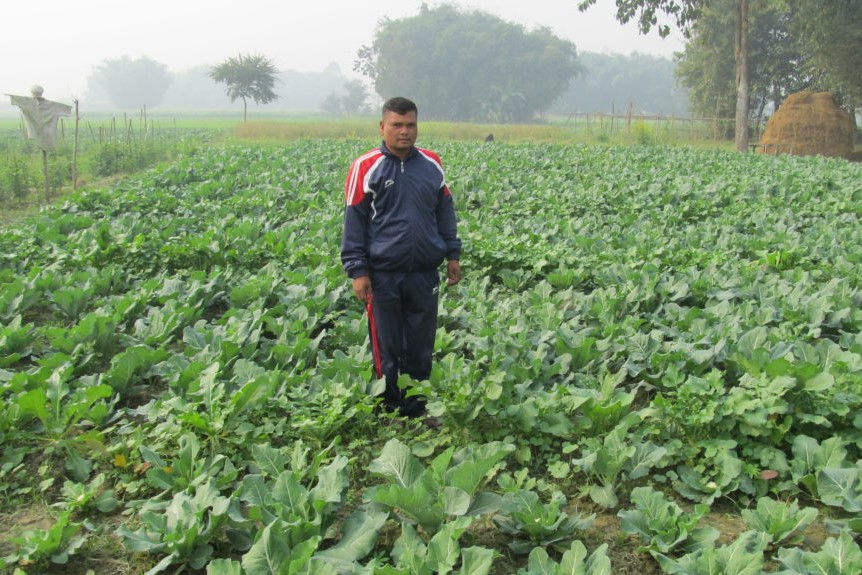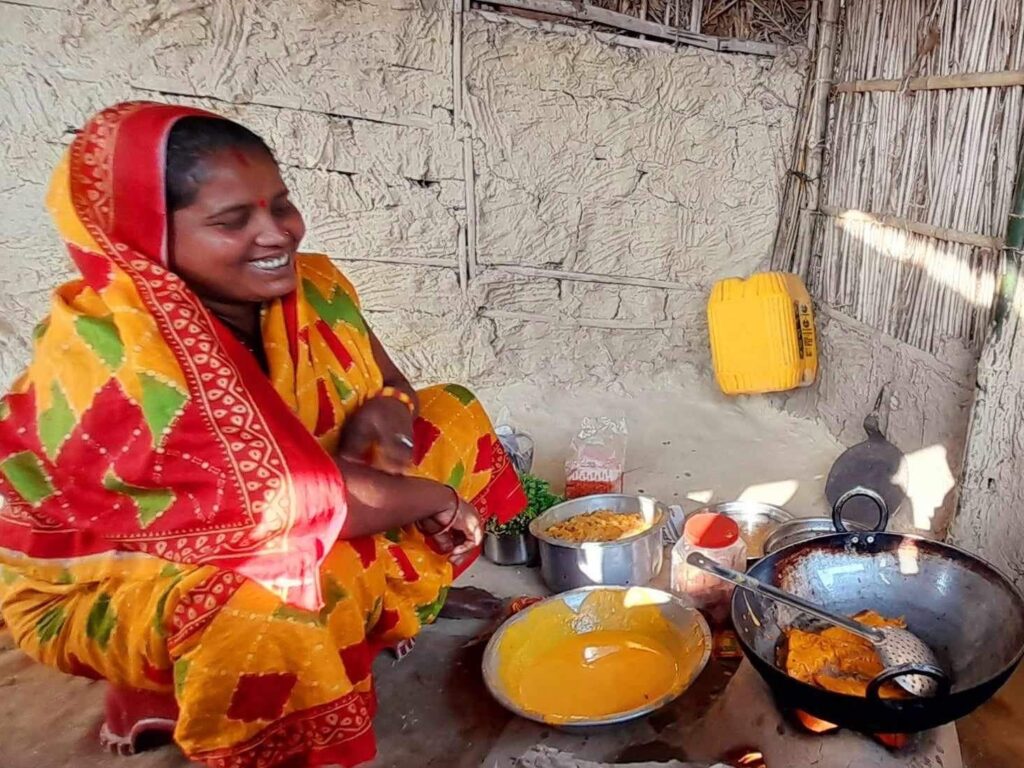 Nepal Jahada
Nepal Jahada
$50,000 needed of $95,449

Implementing Organization
Mennonite Central Committee (MCC)
Program Summary
This program responds to widespread malnutrition and seasonal hunger among marginalized landless and land-poor residents in Jahada. Farmers groups are being formed and participants are trained on vegetable farming and fish raising and are given access to leased land and fishponds. As a result, they are improving their diets and earning their own income rather than relying on labor migration and daily wage labor to survive. This is enabling marginalized communities to break out of the cycle of hunger and labor exploitation and improve their nutritional status and income by farming for themselves, rather than landlords.
In addition, mothers of malnourished children are learning to make “superflour” which children eat as a porridge to improve their nutrition. Mothers are also learning kitchen gardening skills for a diversified diet.
Sangita's Story - Nepal Jahada Program
Success Stories

Small Business, Huge Impact
Hard work hasn’t always paid off for Suman and her husband, but now things are starting to turn around for them as participants in the program by local partner Group of Helping Hands (SAHAS Nepal).
Not that long ago, the family depended entirely on what they could pull in as daily wage laborers on other people’s farms. It was difficult to feed their family of five and cover basic necessities, let alone cope with unplanned-for expenses. Therefore, when SAHAS began encouraging the formation of farmers groups in 2022 to address family and community food-security challenges with real solutions, Suman decided to join.
In addition to instruction on home gardening, she signed up for something called “Off-Farm/Business Plan Training.” When she wasn’t trying out environmentally-friendly agricultural techniques for growing vegetables in her kitchen garden, Suman was drawing up a business plan. She received approval and a small revolving loan to begin selling locally-popular snacks like aloo chop (potato fritters) and bhakka (rice cakes) out of her home.
Thanks to gender awareness training for men and women, village husbands now have a better understanding of the traditionally uneven workloads their wives have always shouldered and are willing to share more of the household responsibilities. Suman’s husband fully supports her small business and gardening efforts. As well he might: sales of her snacks and excess vegetables are bringing in three times what she was able to earn as a farm worker. She’s now able to pay for her children’s education, buy household staples, and even save money through her group’s savings and lending practices.
Suman says, “Being a woman starting a small business was very scary to me at first.” She expressed gratitude to the staff of SAHAS for their guidance and support, and says she’s planning on expanding her little “snack center” and enlarging her garden to increase sales and income.
“Thank you,” she says simply.
Nepal Jahada Program
Led by Mennonite Central Committee and Local Partner Group of Helping Hands (SAHAS)
